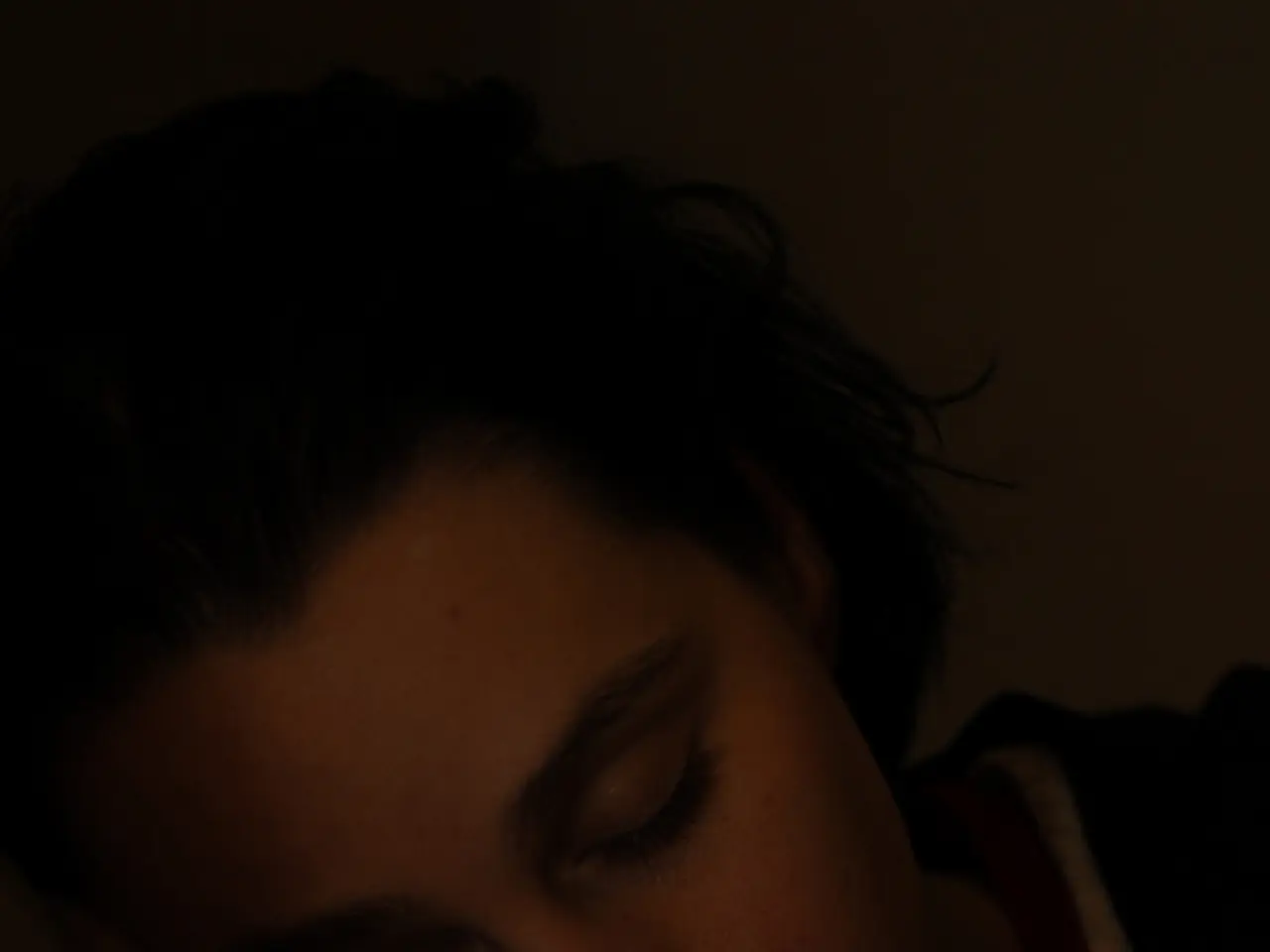Sleep-related Verbalization: The Mystery Behind It
Sleep talking, or somniloquy, is a common phenomenon that occurs during sleep, affecting a significant number of people worldwide. While the exact cause of sleep talking remains elusive, several factors have been identified as potential contributors.
A hereditary component seems to play a role in sleep talking, with the condition often running in families [3][5]. Emotional strain and mental overload can trigger sleep talking by disturbing brain transitions between sleep and wakefulness [1][2][3]. Disorders such as anxiety, depression, and post-traumatic stress disorder (PTSD) are linked to increased frequency of sleep talking [1][2][3][5].
Lack of sufficient restful sleep can disrupt normal sleep cycles, leading to sleep talking [1][2]. Other sleep disorders, such as REM Sleep Behavior Disorder (RBD), night terrors, sleepwalking, teeth-grinding, and sleep apnea, are also associated with sleep talking [1][2][3][5].
Lifestyle factors, such as alcohol consumption close to bedtime and use of certain medications (e.g., antidepressants, sedatives) or recreational drugs, can increase sleep talking episodes [2][4]. Elevated body temperature or discomfort during illness can fragment sleep and provoke vocalizations during sleep [2].
Sleep talking is usually harmless but can be a sign of fragmented sleep or underlying medical or psychological issues when frequent or intense [2][5]. It tends to occur when part of the brain fails to fully transition into sleep, causing behaviors more typical of wakefulness to appear during sleep phases [3].
Avoiding stress, managing mental health conditions, reducing alcohol intake near bedtime, and ensuring proper sleep hygiene (e.g., getting to bed on time, avoiding caffeine and screens, and living healthy) may help reduce sleep talking episodes [1][5].
In some cases, sleep talking can escalate from benign talking to shouting and violent actions, such as kicking, punching, or falling out of bed, which may indicate RBD [6]. If sleep talking occurs suddenly as an adult or involves intense fear, screaming, or violent actions, it may be necessary to see a sleep specialist.
Studies suggest that as many as two out of three people sleep talk at some point in their lives [7]. Most intelligible sleep-talking consists of the word "no" or various questions, and a lot of it is swearing [8]. Certain medications, including some antidepressants, asthma meds, or sleep aids like Ambien, have also been linked to sleep talking [8].
In 2024, Michelle Drerup, a behavioral sleep medicine specialist at the Cleveland Clinic, suggested that a sleep study may be necessary to rule out contributing sleep disorders [9]. Sleep talking is more common in children due to their less mature brains and higher proportion of REM sleep [10].
It is essential to remember that sleep talking is not a reliable method for uncovering deep secrets, as the content of sleep-talking utterances is often not actual words [11].
References:
- Mayo Clinic
- Sleep Foundation
- National Sleep Foundation
- WebMD
- MedlinePlus
- American Sleep Association
- Psychology Today
- Healthline
- Cleveland Clinic
- Sleep Advisor
- British Sleep Society
- Genetics might influence sleep talking, as the condition seems to run in families, based on research by the National Sleep Foundation [3].
- Environmental factors like emotional strain, mental overload, and the use of certain medications or recreational drugs can trigger sleep talking, according to studies by the Mayo Clinic, Sleep Foundation, and WebMD [1][2][4].
- Disorders like anxiety, depression, and post-traumatic stress disorder (PTSD) are associated with increased frequency of sleep talking, as suggested by multiple research sources, including the National Sleep Foundation, MedlinePlus, and the American Sleep Association [1][2][3][5].
- In some cases, sleep talking can escalate to violent actions, such as kicking, punching, or falling out of bed, indicating a possible REM Sleep Behavior Disorder, as noted by the American Sleep Association [6].
- Maintaining good health-and-wellness practices, such as avoiding stress, managing mental health conditions, and ensuring proper sleep hygiene, may help reduce sleep talking episodes, according to recommendations from the Sleep Foundation and Cleveland Clinic [1][5].




